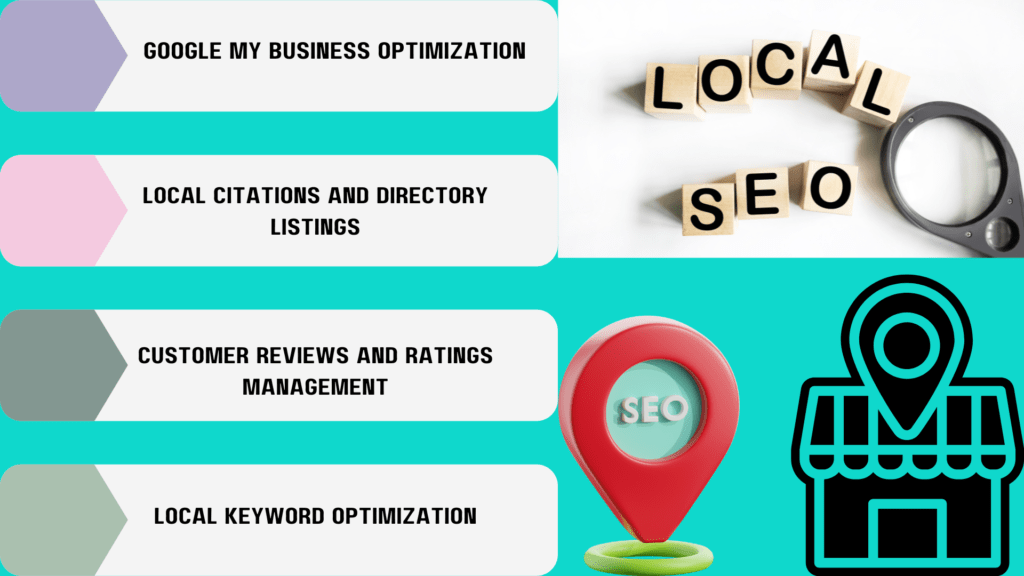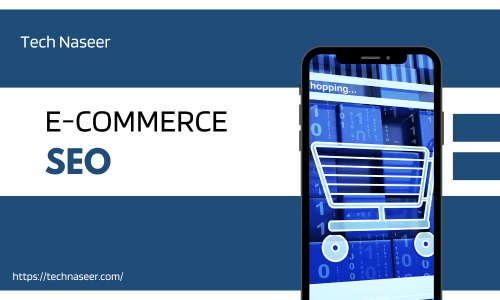- Leading digital marketing (Search Engine Optimization )agency
- Specializes in comprehensive Search Engine Optimization and SEO services
- Proven track record with diverse clientele
Importance of SEO in Digital Marketing
- Enhances website visibility on search engines
- Drives organic traffic to websites
- Increases brand credibility and trust
- Improves user experience and engagement
- Boosts conversion rates and sales
Tech Naseer’s Expertise and Experience in SEO
- SEO expert in Pakistan Team of certified Search Engine Optimization and Seo Services professionals
- Years of experience in various industries
- SEO expert in Pakistan Utilizes the latest Search Engine Optimization tools and techniques
- SEO expert in PakistanProven success with numerous SEO campaigns
- Commitment to continuous learning and adaptation
SEO Service Offerings
On-Page SEO

Keyword Research and Optimization
- Identifying high-value keywords
- Integrating keywords naturally into content
Meta Tag Optimization (Title, Description, Headers)
- Crafting compelling and SEO-friendly meta titles
- Writing informative meta descriptions
- Structuring content with optimized headers (H1, H2, H3)
Content Creation and Optimization
- Producing high-quality, relevant content
- Ensuring content aligns with Search Engine Optimization (seo) best practices
- Updating existing content for better performance
Internal Linking Strategies
- Creating a logical internal link structure
- Linking relevant pages to improve user navigation
- Distributing link equity throughout the site
Image Optimization
- Using descriptive, keyword-rich file names
- Adding alt text for accessibility and Search Engine Optimization (SEO)
- Compressing images for faster loading times
Off-Page SEO

Link Building Strategies
- Acquiring high-quality backlinks from authoritative sites
- Developing relationships with industry-relevant websites
- Utilizing broken link building techniques
Social Media Signals
- Leveraging social media platforms to boost Search Engine Optimization (SEO)
- Encouraging social shares and engagement
- Integrating social media activities with Search Engine Optimization (SEO) campaigns
Guest Blogging
- Writing and publishing articles on reputable blogs
- Including backlinks to your website in guest posts
- Building authority and reaching new audiences
Influencer Outreach
- Partnering with influencers in your industry
- Gaining backlinks and social mentions from influencers
- Enhancing brand visibility and credibility
Google My Business Optimization
- Claiming and verifying your Google My Business listing
- Updating business information (name, address, phone number, hours)
- Adding photos, posts, and updates to engage users
Local Citations and Directory Listings
- Submitting and maintaining consistent business information across local directories
- Building citations on high-authority local sites
- Ensuring NAP (Name, Address, Phone Number) consistency
Customer Reviews and Ratings Management
- Encouraging satisfied customers to leave positive reviews
- Responding to reviews to enhance customer engagement
- Managing and mitigating negative reviews
Local Keyword Optimization
- Researching and targeting local-specific keywords
- Incorporating local keywords into website content
- Optimizing meta tags and headers for local search terms
Site Speed Optimization
- Minimizing load times by compressing files and optimizing code
- Utilizing Content Delivery Networks (CDNs)
- Implementing browser caching and reducing server response times
Mobile-Friendliness
- Ensuring responsive web design for all devices
- Optimizing mobile navigation and user experience
- Implementing Accelerated Mobile Pages (AMP)
XML Sitemaps
- Creating and submitting XML sitemaps to Search Engine Optimization (SEO)
- Ensuring all important pages are indexed
- Keeping sitemaps updated as content changes
Robots.txt Optimization
- Managing access to site resources for search engine crawlers
- Preventing indexing of non-essential or duplicate content
- Regularly updating and maintaining the robots.txt file
Structured Data and Schema Markup
- Implementing schema markup to enhance search result visibility
- Using structured data to provide context to search engines
- Improving rich snippets and search engine understanding of content
Product Page Optimization
- Crafting compelling product descriptions with targeted keywords
- Optimizing product titles, meta tags, and URLs
- Using high-quality images and videos with alt text
- Implementing user reviews and ratings
Category Page Optimization
- Structuring category pages with clear, keyword-rich headings
- Writing informative and engaging category descriptions
- Ensuring easy navigation and filtering options
SEO for Shopify, WooCommerce, etc.
- Configuring SEO settings for popular e-commerce platforms
- Utilizing plugins and tools to enhance SEO performance
- Integrating analytics and tracking tools for e-commerce SEO
Conversion Rate Optimization (CRO)
- Analyzing user behavior and site performance
- A/B testing product pages, calls to action, and checkout processes
- Improving site speed and mobile responsiven
- Enhancing overall user experience to boost conversions
Comprehensive SEO Audits
- Evaluating website structure, content, and technical elements
- Identifying issues and opportunities for improvement
- Providing actionable recommendations for optimization
Competitor Analysis
- Analyzing competitors’ SEO strategies and performance
- Identifying competitors’ strengths and weaknesses
- Leveraging insights to enhance your own SEO strategy
Backlink Analysis
- Assessing the quality and quantity of backlinks
- Identifying toxic or low-quality backlinks for removal
- Building a robust backlink profile
Performance Tracking and Reporting
- Monitoring key SEO metrics (traffic, rankings, conversions)
- Using tools like Google Analytics and Search Console
- Generating regular reports to track progress and ROI
- Making data-driven decisions for ongoing optimization
SEO Services
Initial Consultation and Goal Setting
- Understanding client business objectives and goals
- Discussing target audience and market
- Setting clear, measurable SEO goals
SEO Audit and Benchmarking
- Conducting a thorough analysis of the current website
- Identifying technical issues, content gaps, and optimization opportunities
- Benchmarking against competitors and industry standards
Strategy Development
- Creating a customized SEO strategy tailored to client needs
- Defining key tactics and timelines
- Allocating resources and responsibilities
Implementation of SEO Tactics
- Executing on-page, off-page, and technical SEO improvements
- Optimizing website content and structure
- Building high-quality backlinks and enhancing online presence
Monitoring and Analytics
- Continuously tracking SEO performance using analytics tools
- Monitoring keyword rankings, traffic, and user engagement
- Identifying trends and areas for further optimization
Ongoing Optimization and Reporting
- Regularly updating and refining SEO strategies
- Conducting periodic SEO audits and making necessary adjustments
- Providing clients with detailed reports and insights
- Ensuring continuous improvement and adaptation to search engine algorithm changes
- Keyword Suggestions: Provides keyword ideas based on seed keywords, competitors, or your own website.
- Search Volume Data: Shows average monthly searches, competition level, and suggested bid prices for keywords.
- Location-Based Targeting: Offers data on keyword popularity by location, making it ideal for local SEO.
- Ad Campaign Planning: Useful for planning Google Ads campaigns with estimated costs.
Why Use It: A free tool that’s highly reliable for discovering keyword opportunities directly from Google’s own data.
- Keyword Difficulty Score: Estimates how hard it is to rank for a keyword based on backlink profiles.
- Search Volume and Clicks: Provides accurate search volume data along with the number of actual clicks on results.
- Parent Topic Feature: Suggests broader topics that encompass your target keyword.
- Keyword Ideas: Offers keyword suggestions like “related terms,” “phrase match,” and “questions.”
Why Use It: Known for its in-depth keyword research capabilities, making it great for discovering competitive keywords and content gaps.
Uses:
- Broad Keyword Database: Accesses over 20 billion keywords for different niches and industries.
- Keyword Grouping: Helps organize keywords into thematic groups for better content planning.
- Long-Tail Keywords: Identifies long-tail variations with high commercial intent.
- Keyword Difficulty and Trends: Shows keyword difficulty, competition, and trending data over time.
Uses:
- Organic Click-Through Rate (CTR): Estimates the likelihood of searchers clicking on organic results.
- Keyword Difficulty Score: Evaluates how challenging it would be to rank for a specific keyword.
- Priority Score: Combines various metrics like volume, difficulty, and CTR to prioritize keyword opportunities.
- SERP Analysis: Provides an overview of the current top-ranking pages for a keyword.
Why Use It: Great for finding keywords with high ranking potential while minimizing competition.
Uses:
- Keyword Ideas: Offers keyword suggestions along with search volume, cost-per-click (CPC), and competition data.
- Content Ideas: Helps generate content ideas based on top-performing articles in your niche.
- SERP Analysis: Displays the top-ranking pages for any given keyword along with their social shares.
- Keyword Seasonality: Shows keyword trends over the past 12 months to help you identify seasonal opportunities.
Why Use It: User-friendly and perfect for beginners, with a solid set of features for content marketing and SEO.
Uses:
- Autocomplete Suggestions: Extracts keywords from Google Autocomplete, Bing, YouTube, Amazon, and more.
- Long-Tail Keyword Discovery: Finds long-tail keywords that users are searching for across different platforms.
- Question-Based Keywords: Generates questions related to your target keyword, ideal for creating FAQ content.
- Local SEO: Supports keyword research in multiple languages and regions.
Why Use It: Excellent for discovering long-tail keywords and questions that can drive organic traffic.
Uses:
- Question-Based Keywords: Provides keyword suggestions in the form of questions, prepositions, and comparisons.
- Content Ideas: Helps generate content topics based on what people are actively searching for.
- Visualization: Displays keyword ideas in a visual format, making it easy to explore related topics.
- Competitor Research: Useful for identifying content gaps in your competitors’ strategies.
Why Use It: Perfect for brainstorming content ideas and optimizing for long-tail, conversational search queries.
Uses:
- Competitor Keyword Analysis: Reveals the keywords your competitors are ranking for and bidding on.
- Historical Data: Provides data on keyword performance over the years, helping you identify trends.
- SERP Checker: Analyzes search engine results pages (SERPs) for targeted keywords.
- PPC Analysis: Shows which keywords are driving paid search traffic to your competitors.
Why Use It: Ideal for competitive research and uncovering profitable keywords for both organic and paid search campaigns.
Uses:
- Easy-to-Understand Interface: Offers a simple yet powerful tool for finding low-competition keywords.
- Local Keyword Research: Allows you to filter keywords by specific countries, cities, or languages.
- Keyword Difficulty: Provides a straightforward metric to assess the ranking difficulty of a keyword.
- SERP Analysis and Backlink Data: Analyzes the top-ranking pages and their backlink profiles.
Why Use It: Best for beginners and small businesses looking for straightforward keyword research with actionable insights.
10. Soovle
Uses:
- Multi-Platform Keyword Research: Pulls keyword suggestions from multiple sources like Google, Bing, YouTube, Amazon, Wikipedia, and more.
- Autocomplete Suggestions: Uses autocomplete data from different search engines to provide keyword ideas.
- Exportable Data: Allows you to download your keyword lists for further analysis.
- Quick Idea Generation: Perfect for finding niche keywords across different platforms in seconds.
Why Use It: Great for e-commerce and content creators looking to optimize across various search engines and platforms.
Use:
- Crawl Errors: Identifies issues like server errors, 404 errors, and crawl anomalies.
- Mobile Usability: Detects mobile-friendly issues and offers suggestions for improvement.
- Core Web Vitals: Analyzes page speed and user experience metrics like LCP (Largest Contentful Paint), FID (First Input Delay), and CLS (Cumulative Layout Shift).
- Index Coverage: Provides data on which pages are indexed or blocked by robots.txt.
Why Use It: Essential for monitoring how Google views your site, fixing indexing issues, and enhancing search visibility
2. Screaming Frog SEO Spider
Use:
- Comprehensive Site Crawls: Scans websites to identify broken links, missing meta tags, and duplicate content.
- Redirect Audits: Checks for 301 and 302 redirects, as well as potential redirect chains and loops.
- Page Title & Meta Data Analysis: Evaluates the length, uniqueness, and relevance of page titles and meta descriptions.
- Structured Data Validation: Validates structured data and schema markup to improve rich snippets.
Why Use It: Perfect for technical SEO audits, helping to identify and fix on-site issues that impact SEO performance.
3. GTmetrix
Use:
- Page Speed Testing: Measures loading times and performance scores for desktop and mobile.
- Performance Insights: Offers recommendations for optimizing elements like CSS, JavaScript, and image sizes.
- Waterfall Analysis: Provides a breakdown of each request made by your website, showing which elements slow down your site.
- Video Playback: Records your site loading process, allowing you to see exactly where slowdowns occur.
Why Use It: Ideal for improving site speed and performance, which are crucial for user experience and search engine rankings.
4. Lighthouse (Built into Chrome DevTools)
Use:
- Core Web Vitals Assessment: Analyzes performance metrics like LCP, FID, and CLS.
- Accessibility Audit: Checks your site’s compliance with web accessibility standards.
- SEO Best Practices: Provides actionable SEO recommendations, like improving meta tags and links.
- Progressive Web App (PWA) Analysis: Evaluates how well your site performs as a PWA.
Why Use It: Great for developers looking to optimize site performance, accessibility, and SEO directly within the browser.
5. Ahrefs Site Audit Tool
Use:
- Comprehensive Site Health Analysis: Identifies over 100 common SEO issues, from broken links to slow-loading pages.
- Content Gap Analysis: Finds missing opportunities where your competitors are ranking.
- Site Structure Visualization: Provides a visual representation of your site’s architecture.
- JavaScript Rendering: Analyzes JavaScript-heavy sites to ensure they are crawlable and indexable.
Why Use It: Excellent for in-depth SEO audits, especially for large websites that require detailed analysis.
6. Pingdom Website Speed Test
Use:
- Page Load Time Testing: Measures your website’s load speed from different global locations.
- Performance Grades: Provides a performance score based on various factors like caching, image optimization, and server response times.
- Uptime Monitoring: Tracks your site’s uptime and alerts you to any downtime.
- Historical Data: Allows you to compare performance over time to track improvements or degradations.
Why Use It: A straightforward tool for monitoring page speed and server performance, ideal for ongoing performance optimization.
7. SEMrush Site Audit
Use:
- Technical SEO Analysis: Scans for errors like slow-loading pages, broken links, and HTTPS implementation issues.
- Internal Linking Audit: Evaluates your internal link structure for optimization opportunities.
- Content Optimization: Checks for issues like thin content, duplicate content, and content length.
- Site Health Score: Provides a comprehensive score to measure the overall health of your website.
Why Use It: A versatile tool that combines technical audits with content and backlink analysis, making it a robust option for SEO professionals.
8. Page Speed Insights (by Google)
Use:
- Core Web Vitals Reports: Measures user experience metrics on mobile and desktop devices.
- Optimization Suggestions: Offers detailed recommendations for improving page speed, such as leveraging browser caching and minimizing JavaScript.
- Lab and Field Data: Combines lab data (synthetic testing) with field data (real-world user experiences).
- Opportunities: Identifies specific areas where your site could load faster.
Why Use It: Crucial for optimizing your site’s speed and Core Web Vitals, impacting both user experience and search rankings.
9. Deep Crawl
Use:
- Advanced Crawling Capabilities: Analyzes large websites with millions of pages, focusing on technical SEO issues.
- Log File Analysis: Tracks how search engines crawl your website, helping you optimize crawl budget.
- JavaScript Rendering: Ensures that content rendered via JavaScript is properly crawled and indexed.
- SEO Change Tracking: Monitors changes to your website to detect any potential SEO impact.
Why Use It: Best for enterprise-level websites that require scalable and comprehensive technical audits.
10. Web Page Test
Use:
- Advanced Performance Testing: Measures load time, first-byte time, and overall performance from various global locations.
- Content Breakdown: Analyzes each element of your page (images, scripts, CSS) for optimization.
- Visual Comparison: Allows side-by-side comparisons of website performance before and after optimizations.
- Mobile Site Testing: Tests site speed and performance on real mobile devices.
Why Use It: Excellent for detailed performance analysis, especially for testing how your site performs across different devices and locations.
Unique Selling Propositions (USPs)
- Tailored SEO strategies for individual business needs
- Use of the latest tools and technologies for optimal results
- Transparent and ethical approach to SEO
Experienced and Skilled SEO Professionals
- Team of experts with years of industry experience
- Continuous learning and adaptation to the latest SEO trends
- Proven expertise in both on-page and off-page SEO
Commitment to White-Hat SEO Practices
- Adherence to Google Webmaster Guidelines
- Focus on long-term results and sustainable growth
- Ethical techniques to avoid penalties and ensure credibility
Proven Track Record of Success
- Case studies showcasing significant improvements in traffic and rankings
- High client retention rate due to consistent results
- Positive testimonials from satisfied clients
Customer Support and Satisfaction Guarantee
- Dedicated account managers for personalized service
- Prompt and responsive support team
- Commitment to customer satisfaction with guaranteed performance improvement

Contact Information
- Tech Naseer
- Website: technaseer.com
- Email: info@technaseer.com
- Phone: +92-301-4846-334
Initial Consultation Booking
- Schedule a Consultation
- Visit our website or contact us via email or phone to schedule a consultation.
- Discuss your SEO goals and business objectives with our experts.









